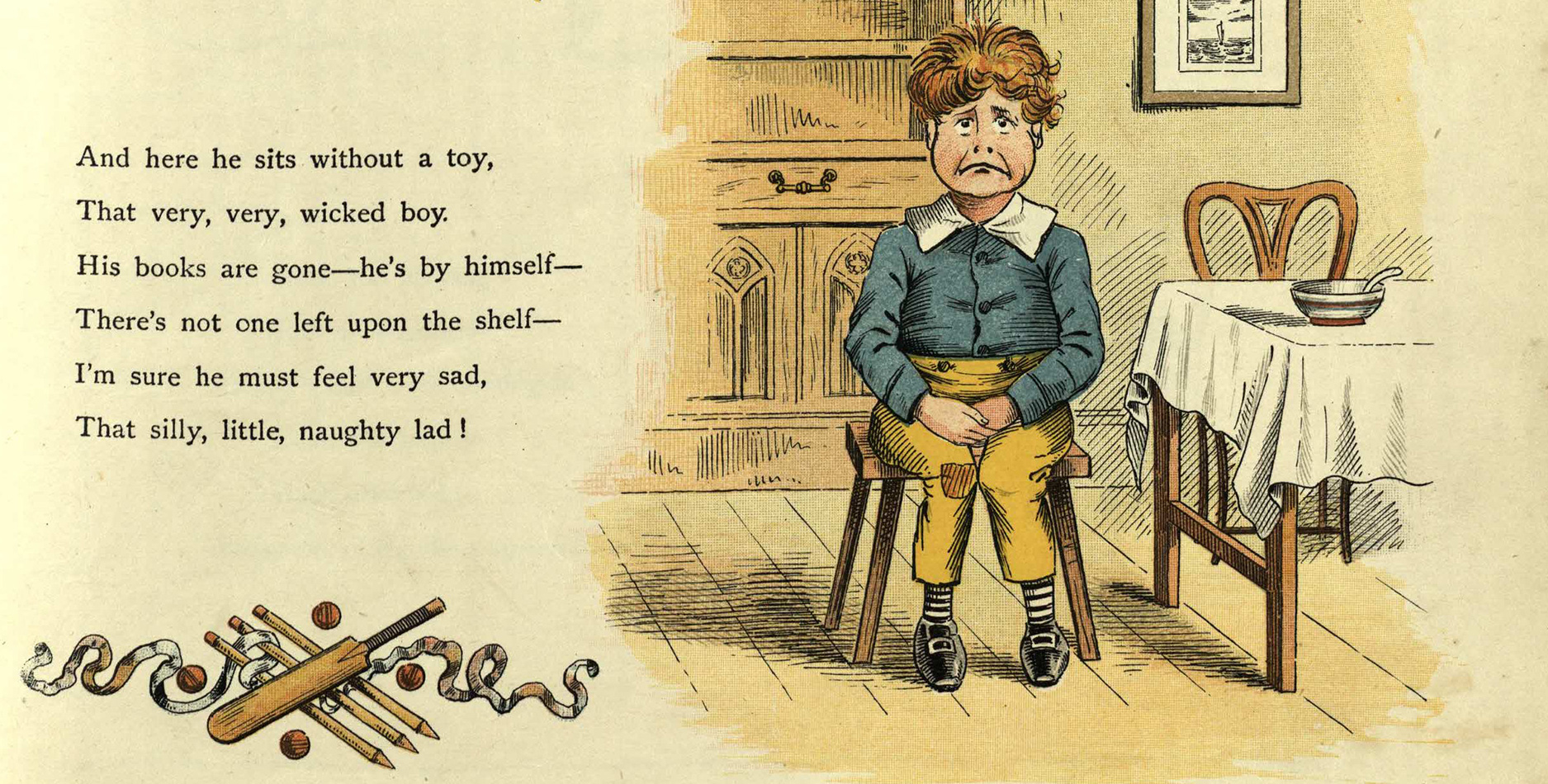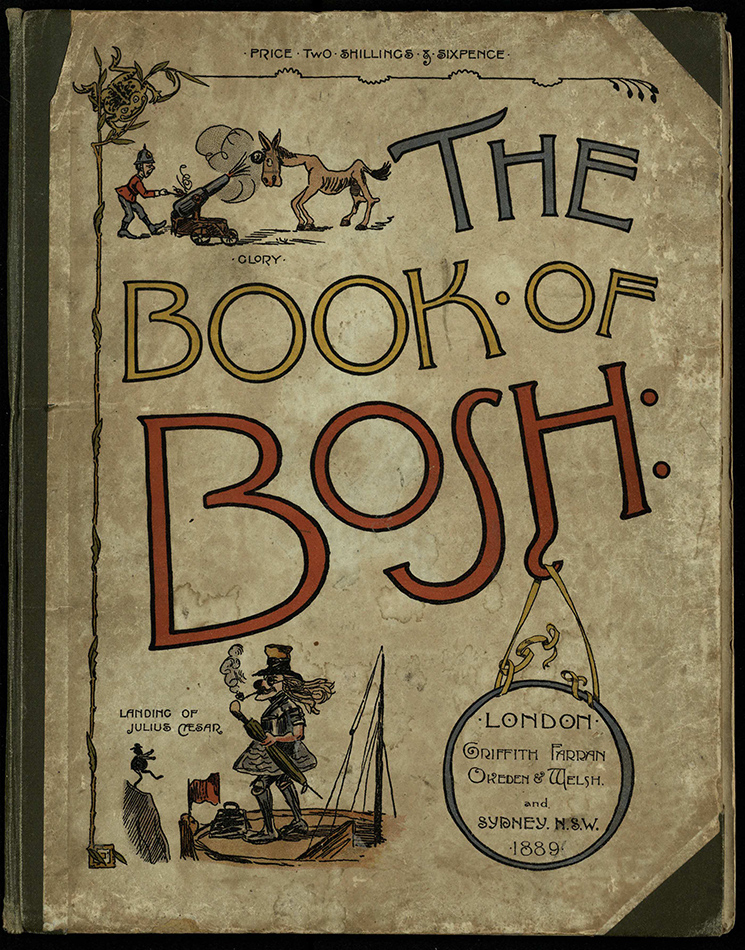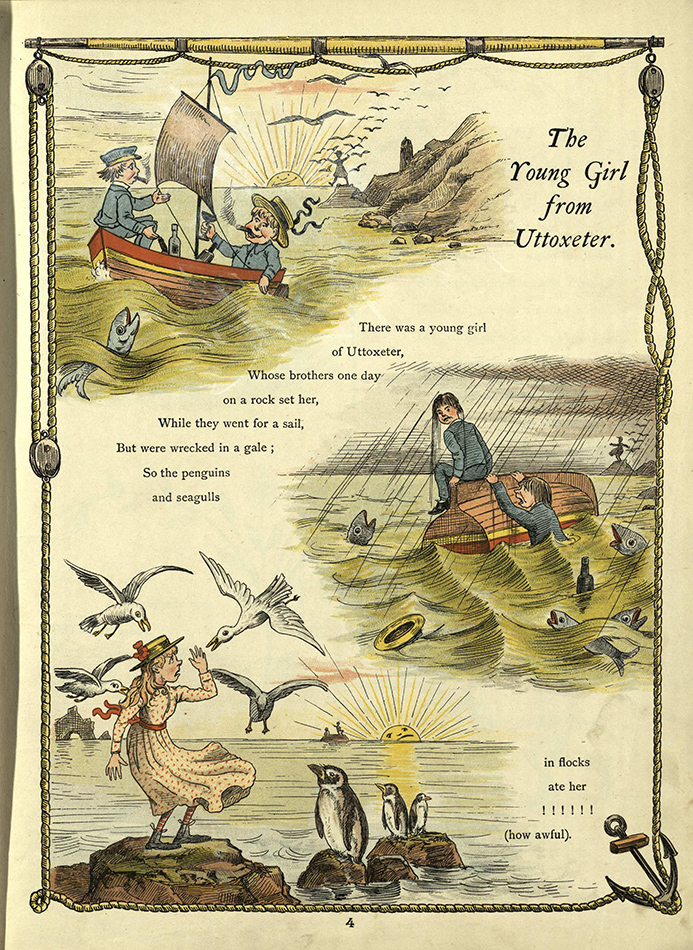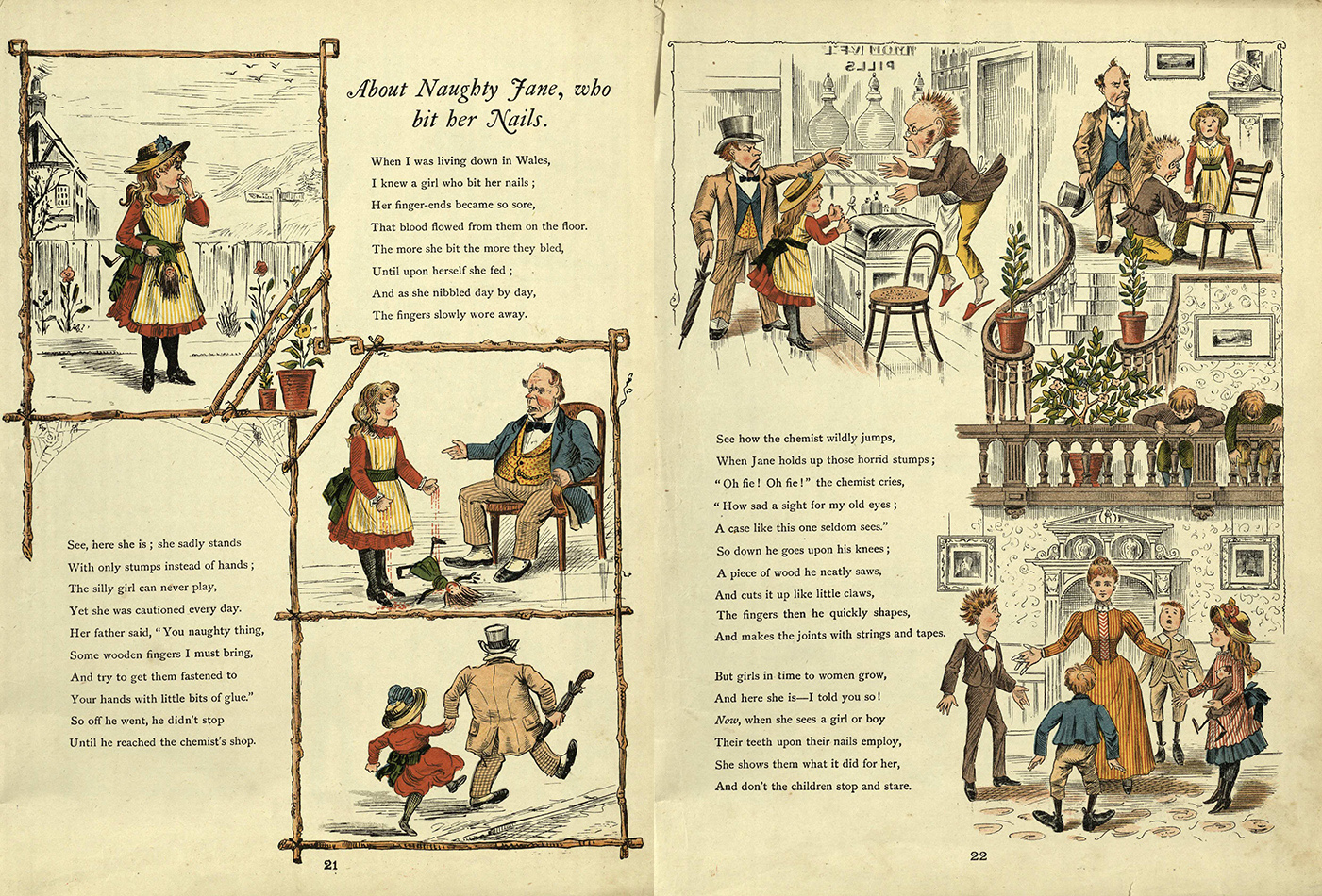Reading the Collections, Week 7: The Book of Bosh


I have a few truly vivid memories of being six years old: the time I jumped from the monkey bars because I wanted to break my arm and get a rainbow-colored cast, my fierce and loyal devotion to peanut butter sandwiches, and the day my teacher read Shel Silverstein’s “Little Abigail and the Beautiful Pony” to my class.
The poem is simple and reads like a nursery rhyme. Except there are no cats, fiddles, or frolicking dishware in this deceptively innocent childhood tale. It’s about a little girl who whines and whines about needing a pony or else she’ll DIE, her parents rolling their eyes until the day she does indeed die.
My classmates laughed. I cowered in terror and developed a severe phobia of circuses, fairs, or anywhere else there might be ponies.
It’s common knowledge that children’s books and stories don’t always shy from dark and disturbing themes. Who hasn’t looked up the original fairy tales by Hans Christian Andersen only to become a little shocked? But where is the singing seagull?! I asked in horror the first time I read the real “Little Mermaid” story, the one that involves more knives and death than amusing ocean showtunes.
The Book of Bosh, published in London in 1889, falls neatly into this tradition. Like many tales and rhymes for children, these are designed to instruct and provide morals. But, like the Shel Silverstein poem, they also seem like a healthy source of nightmare fodder.

Take the story of “The Young Girl from Uttoxeter”, who’s left by her brothers to stand on a rock in the middle of the water. The boys are capsized and the young girl is then attacked and eaten by sea birds. The rhyme ends with six exclamation marks and the parenthetical statement “how awful”.
I think most readers would be tempted to say, “No kidding.”
The lush illustrations you’ll find in the St Andrews copy of The Book of Bosh serve to hammer home the unsettling points. “About Naughty Jane, who bit her nails” warns of the extreme and dire consequence of chewing your nails, and is accompanied by a gruesome rendering of little Jane actually gnawing off her own fingers. Yeesh.

The Book of Bosh was printed in the late 19th century, a rich period for nursery rhymes. Andrew Lang, who studied at the University of St Andrews and whose work comprises one of our library’s collections, published The Nursery Rhyme Book in 1897, and had, by that time, already built an important career studying folklore and fairy tales.
However, just because nursery rhymes were popular doesn’t mean they were immune to criticism and detractors. In the early 20th century, only a few years after The Book of Bosh was published, The Society for Nursery Rhyme Reform was created to push for the eradication of violence in children’s stories (Dowd et al. Handbook of Children, Culture, and Violence, 2006). Even stories more familiar to us than those from The Book of Bosh often hold darker meanings than their sing-songy deliveries might suggest. “Ring Around the Rosie” (or “Ring A Ring o’ Roses) sounds cheerful and upbeat enough, but some think it’s actually about The Great Plague. In any case, the final line “we all fall down” doesn’t exactly sound like a synonym for “they all lived happily ever after”.
Nursery rhymes and folk tales and fairy tales—like most kinds of stories—have a history that is steeped in all elements of life. From friendly, singing seagulls to the “awful” fate of being eaten by one. From the joy of wanting a pony, to the horror of dying because you didn’t get one.
Cecilia Vinesse
Cataloguer